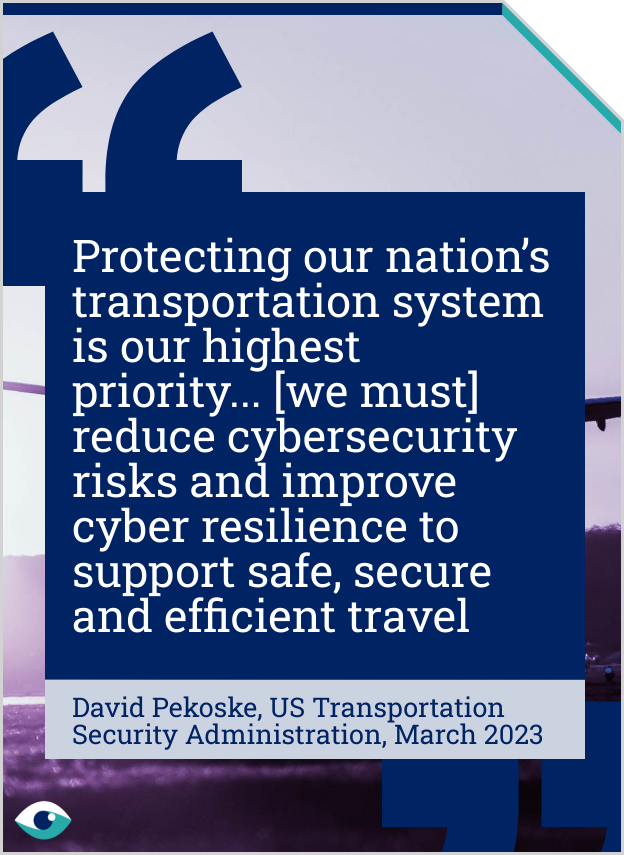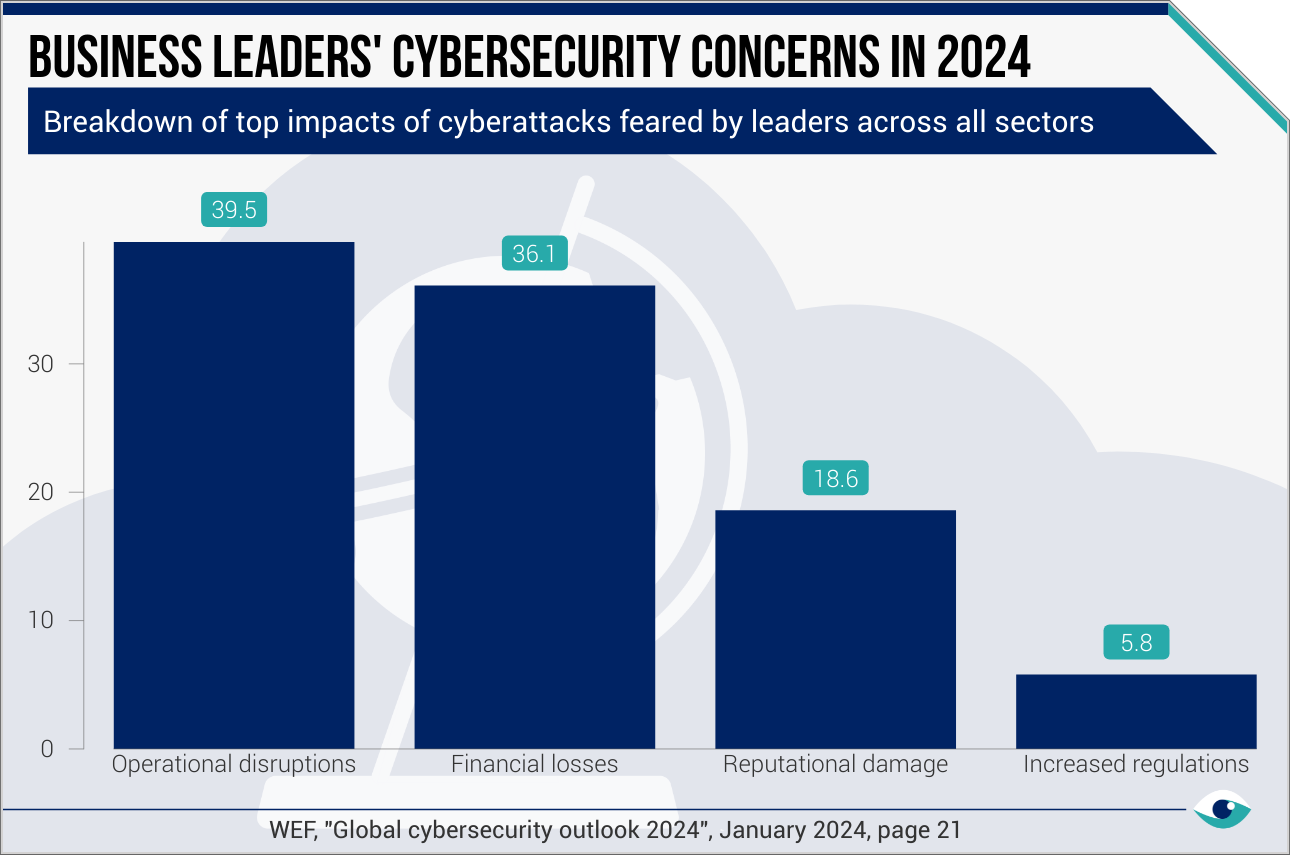In 2023, the aviation industry recorded 764 cyberattacks, leading to operational disruptions, financial losses, and reputational damage. The complexity of threats, including sophisticated Artificial Intelligence (AI)-driven phishing, continues to challenge the efficacy of established security measures. Despite the comprehensive guidelines provided by the NIST Cybersecurity Framework (CSF) and ISO 27001 on information security, cybersecurity and privacy protection, cyberthreats evolve rapidly. Earlier this year, the release of NIST CSF 2.0 introduced updated and robust strategies to effectively mitigate these risks.

764 cyberattacks hit aviation in 2023
Rising cyberthreats demand robust cybersecurity practices to safeguard aviation operations and ensure passenger safety
Value chain: downstream
Aerospace
AT A GLANCE
Phishing attacks surge 464% due to technological advances in Artificial Intelligence technologies.
Robust cybersecurity practices are essential, as attacks lead to operational disruptions, financial losses and endanger passenger safety.
NIST Cybersecurity Framework 2.0 was released earlier this year; however, human training remains the most crucial aspect.

Increasing digital threats
As aeroplanes become increasingly digital, their networked components, e.g. for navigation and communication systems, mean new vulnerabilities for cybercriminals. Hackers are improving their techniques, with phishing attacks being particularly prevalent. Phishing involves communications that mimic urgent messages from trusted sources to steal sensitive information. The rise of generative AI systems, like ChatGPT, has intensified this threat. In 2023, email-based phishing attacks surged 464% YoY.
Cybersecurity best practices
The International Civil Aviation Organisation (ICAO) has established cybersecurity guidelines that emphasise the need of implementing offline backups for critical data, encrypting sensitive information, and ensuring that processes are in place for the continuity of critical functions, if data availability or integrity is compromised. As a recent study suggests, these guidelines underscore the principles of the CIA triad – confidentiality, integrity, and data availability – which are fundamental to safeguarding aviation systems.

Cybersecurity disclosures
Cyberattacks can disrupt operations, leading to flight cancellations and financial losses, and compromise passenger safety by affecting critical systems like flight controls and air traffic management. The industry has adopted the NIST CSF and ISO 27001, which require companies to disclose their cybersecurity practices and past security incidents. Under International Financial Reporting Standards (IFRS), companies are required to disclose financial and operational impacts of data breaches.
Awareness and training
A recent WEF report emphasises addressing the human element of cybersecurity, as 80% of data breaches result from human error. Early prevention, detection and cybersecurity awareness training programmes are crucial. They help identify the initial stages of the most common cyberattacks and are essential for all personnel. These initiatives may initially increase operating costs, but are critical in reducing potential litigation costs, penalties and reputational damage.
